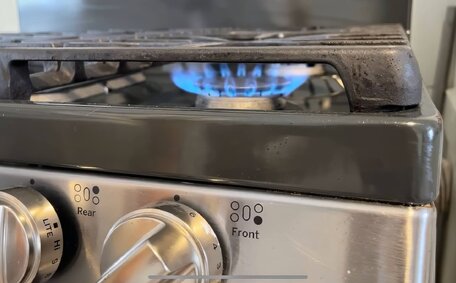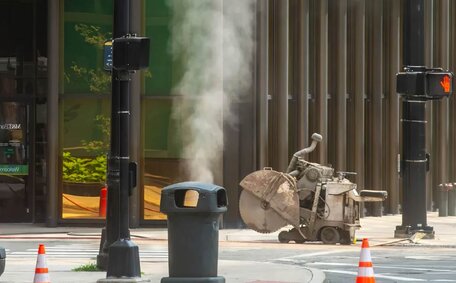Introduction to gas fitting regulations and permits in Australia
The Australian Standard AS/NZS 5601 specifies requirements for working with gas systems. A clear understanding of gasfitting regulations ensures safety and legal compliance.
Gas fitters may require specific permits depending on the type of gas fitting work being performed. Proper gasfitting work, including installation maintenance, and repair, is critical for safety in Australian homes and businesses.
For elaborate type b installations, such as adding multiple gas appliances, obtaining a mandatory planning permit from authorities is required. Staying up to date on evolving requirements is an ongoing responsibility for industry professionals and companies like Rockdale Plumbing servicing Sydney and surrounding regions.
Lacking authorised credentials like your application for an appropriate permit, unqualified technicians expose themselves and their clients to significant risk.
Homeowners must understand permit requirements to ensure they hire qualified gas fitters for legal and safe gas system servicing. This article clarifies the requirements for permits, standards compliance, individual training, and the implications for property owners installing or upgrading gas connections and appliances.
It addresses the crucial question, 'Do I need a permit?' to avoid unforeseen costs or compliance issues.
Types of gas fitting work requiring permits
Several gas fitting tasks in Australia legally require permits before commencing:
- Carrying out work gas fitting installations of new gas appliances like cooktops, hot water systems, or space heaters
- Expanding the gas supply network to accommodate more natural gas outlets through additional gas pipes
- Modifying, extending, or connected gas pipe systems
- Working with liquefied petroleum (LP) gas systems in caravans, boats, or mobile homes
Prospective gas fitters can pursue accredited courses, some requiring fees, to ensure compliance and obtain qualifications such as a plumbing license or a Certificate III in Gas Fitting. A permit certifies a fitter’s training and authorisation to handle gas systems safely and competently.
Routine jobs, such as replacing a gas appliance with a similar model, may not require a permit if regulations are strictly adhered to. However, the complexity of regulations means licenced professionals should still confirm requirements based on the specifics of each job before commencing work.
As gas system defects can pose serious dangers, tasks that require a permit to carry out gas work as mandated add a layer of protection through accountability and ensuring work on gas installations meets mandated qualifications. They affirm gas fitters adhere to essential design principles and uphold strict gas standards, even when providing mechanical services with stationary engines.
Licensing and qualifications for gas fitters
To perform legal gas fitting work in Australia, practitioners must obtain prerequisite credentials and a specific permit or meet state and territory qualifications:
- In many regions, applicants must first register with a licensing board before enrolling in advanced programs, such as a licensed plumber qualification or Certificate III in Gas Fitting, to conduct authorised residential and commercial gas work.
- Western Australia and Northern Territory require obtaining class specific gas licences like a Gas Fitters Permit or Gas Fitting Authorisation licence.
- All gas fitters must also maintain additional safety training like Working Safely Near Gas Infrastructure with organizations like SafeWork SA, and engage in regular Continuing Professional Development (CPD).
These requirements ensure customers pay only for certified tasks like gas appliance installation or pipeline extension. They ensure gas fitters follow the latest standards and safety procedures for working with gas systems, including storage devices, and more. Licences also mandate supervision or oversight based on the work type.
Homeowners and business owners can ensure they pay only for qualified expertise by hiring technicians with valid accreditations for complex installations. This gives confidence in both legal compliance and getting skilled professionals able to safely handle potentially hazardous gas systems.
State-by-state overview of gas fitting regulations
Gas fitting regulations, requirements, and recent changes vary across different Australian states and territories:
- New South Wales, where building energy efficiency can continue to improve, requires gas fitters to hold a gasfitting licence for most residential gas and commercial work. There are talks of mandating all new developments to run on electric power instead of gas by 2023.
- Under victorian government regulations, all gas jobs in Victoria mandate a licenced professional, while intricate tasks additionally require permits. The government plans to ban gas connections in new homes as early as 2025.
- Queensland gas fitters must complete required preliminary qualifications, obtain a licence, and secure additional authorisations for LP gas work. Stricter regulations are expected soon for higher risk procedures.
- South Australia recognises multiple classes of work, with class i e gas installations included, each having prerequisites like certified training or minimum years of experience.
- Professionals in Western Australia should review fee schedules and conditions, which might mandate holding a gasfitting permit or working under an authorised contractor for gas connections.
- Tasmania, Northern Territory, and the ACT have the simplest requirements, only needing a licenced gas fitter without permits.
Professionals seeking to update their qualifications should stay informed about state-specific gas regulatory requirements. Hence practitioners should verify exact permit and qualification prerequisites for their situation prior to commencing projects. Staying up-to-date on changing rules reduces compliance risks.
Ensuring safety and compliance
Permits and gas fitting regulations guarantee safety for both technicians and the public by requiring accountable permit holders. They provide necessary checks and accountability at multiple levels.
Permits verify that gas fitters are qualified to legally and safely perform complex type B gas tasks, demonstrating they have completed the necessary training. It also requires oversight mechanisms like reviews of work. These measures aim to prevent errors or issues like gas leaks leading to fires, explosions, or carbon monoxide poisoning.
Homeowners benefit by allowing only certified experts to work on their gas systems. The permit process assesses professionals for competence in best practice installation and maintenance procedures. It also upholds minimum safety feature standards for new gas appliances and connections.
While permits or licencing requirements may seem tedious paperwork, they provide quality assurance. Accountability ensures gas fitters adhere to evolving safety codes and technology improvements. Australia’s rigorous gas regulations aim to balance practical compliance with life protection by preventing avoidable gas-related fatalities.
Recent updates to gas fitting legislation
There have been several notable recent changes to gas fitting laws and regulations across different Australian states:
- New South Wales introduced new rules in 2021 mandating increased supervision for apprentice gas fitters. Certain high-risk jobs now require direct oversight from qualified professionals.
- In 2022, Victoria updated gas safety regulations, revising testing compliance standards for new gas appliances. As part of their study, course students enrolling fulltime must understand that all installed appliances require updated compliance labels for successful inspections.
- Queensland now encourages those who have completed their classes in the gas fittingclass, to familiarise themselves with the updated training code, covering out all units of gas fitting practice. The new legally binding standard provides best practise guidance on current installation procedures and emerging technologies like hydrogen-ready fittings.
- Western Australia, under mines industry regulation, mandates that commercial gas fitters obtain a gas permit by completing a course for fitting communication pipes for certification. This aims to reduce risks from construction work accidentally damaging gas infrastructure.
The full list fee and updated regulations are crafted to bolster technical skills and ensure safety across the gas fitting industry. At Rockdale Plumbing, our licenced technicians are committed to continuous learning, ensuring that every course opens new opportunities and you’ll only pay for services that are compliant with Sydney-area regulations. Staying abreast of legislative changes allows us to provide legally approved, quality gas servicing.
Implications for homeowners and plumbers
These regulations have significant implications for homeowners and plumbers during the installation or upgrade of gas systems:
- Homeowners should partner with qualified gas fitters to ensure services align with codes and permits are secured, thus safeguarding their safety.
- Unpermitted gas jobs can risk fines plus additional costs to fix any issues down the track.
- Plumbers must maintain their licence and qualifications to legally perform gas work in Australia.
- Penalties for non-compliant gas fitting without permits and not licensed under creative commons accreditation include cancelling licences or facing fees quoted estimates only of up to $15,000.
For more information on the latest local requirements including a detailed list fees, residents can learn more about gas servicing companies like Rockdale Plumbing to avoid problems. We’re always happy to clarify permit needs and confirm our technicians’ credentials for your planned gas appliance installations, replacements, or pipe system extensions.
For a comprehensive understanding of regulations including quoted estimates only, please view full list fee on our website which opens new window or contact our friendly team on 1300 349 338 for detailed advice on gas regulations or project planning. We specialise in approved and fully compliant gas fitting jobs in the greater Sydney area.
Conclusion and advice for staying informed
In summary, proper gas fitting permits and licences are crucial for safety across Australian households and businesses. All residential and commercial gas jobs have stringent regulations to uphold, with complex tasks like new installations legally requiring certified experts to obtain permits before starting work.
Homeowners and plumbers must fully understand the latest qualifications, standards, and permitting rules to avoid fines or compliance issues. We recommend staying informed of the latest requirements by connecting with industry groups, local authorities, or trusted gas fitting services like Rockdale Plumbing.
Our licensed team keeps up-to-date with legislative changes in Sydney and surrounding areas. We obtain all necessary permits and oversight to legally carry out gas jobs, giving clients confidence in effective, safe and fully compliant servicing. For expert advice on your gas installation, replacement, or repair project, contact us at 1300 349 338.
Abiding by gas regulations maintains safety for communities, industry technicians, and properties across Australia. These technical regulations mandate proper training and oversight, ensuring accountability for complex gas system work. A thorough understanding enables gas fitters and homeowners to make knowledgeable decisions.






